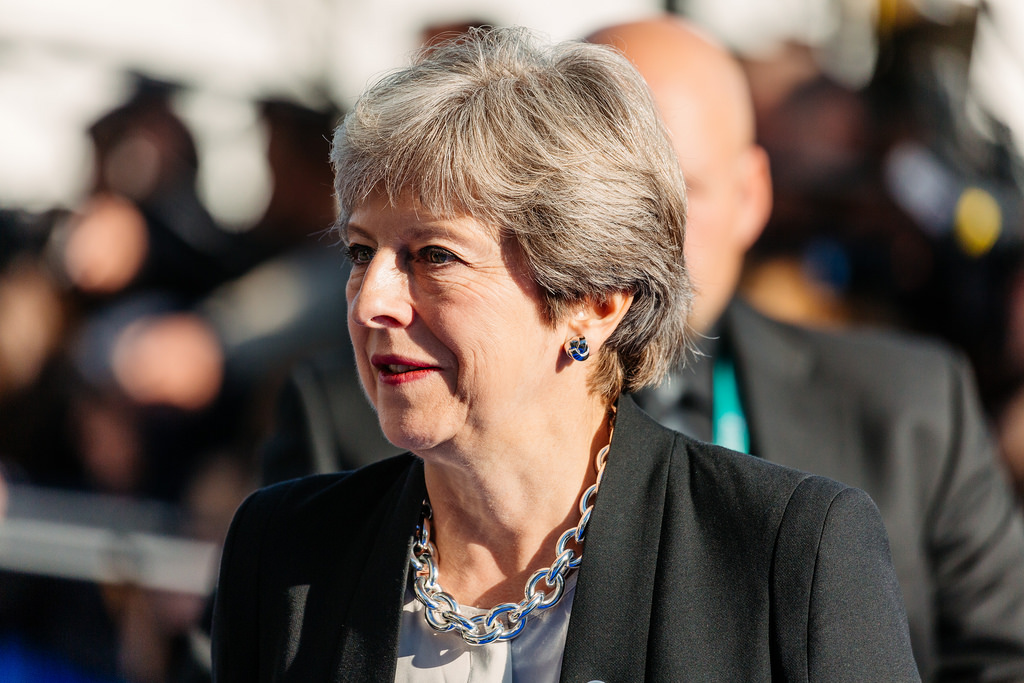U.K. Prime Minister's Speech on the Russian Poisoning of Sergei Skripal: Decoding the Signals
U.K. Prime Minister Theresa May said Monday that it was “highly likely” that the Russian government was behind the poisoning and attempted murder of former Russian military intelligence officer Sergei Skripal on British soil using a Russian-developed nerve agent from the “Novichok” neurotoxin family.

U.K. Prime Minister Theresa May said Monday that it was “highly likely” that the Russian government was behind the poisoning and attempted murder of former Russian military intelligence officer Sergei Skripal on British soil using a Russian-developed nerve agent from the “Novichok” neurotoxin family. According to May, if the Russian government makes no “credible response” by the end of Tuesday, “the U.K. would conclude there has been an ‘unlawful use of force’ by Moscow.”
The United States’ words from the White House podium were much less careful and more clumsily delivered. Secretary of State Rex Tillerson’s statement on Monday night was helpful, but his subsequent summary dismissal Tuesday morning derailed any signals it was intended to send.
May wasn’t speaking to a domestic audience: Her speech was aimed at the international community. The United States needs to hear it for what it is—and it doesn’t have a lot of time to get its act together and plan how to respond.
Diplomacy involves careful language and signaling; the language, style and delivery of the U.K.’s message requires some decoding.
First, this is a statement by the prime minister delivered from the despatch box in Parliament. In diplomacy, the bearer of a message, the location from which it is sent and the delay of delivery act together to form a volume of sorts. In 2016, after the U.S. government failed to publicly attribute the Democratic National Committee hack to the Russian government for about four months, until Oct. 7 of that year; and even then, when the announcement wasn’t made by the president from the White House, many around the world interpreted the response as a show of weakness by the United States.
May did not make this mistake. Here, May made the statement herself, from the prime minister’s despatch box—the parliamentary equivalent of the White House press podium—within a few days of the attack. The despatch box is the place from which the prime minister speaks to Parliament and the world. This is the U.K. beginning its response at maximum diplomatic volume.
Next, the prime minister’s choice of words is important. She said the U.K. assesses it as “highly likely” that the Russian government was behind the attack. “Highly likely” is the U.K. intelligence community’s highest level of confidence. Attributions are never certain, so the U.K. intelligence community never says “X happened.” Instead it says “we assess it is highly likely that X happened.” The U.K. intelligence community doesn’t get more certain than that. This too is a signal: This is the U.K. saying its threshold to be convinced of the attribution has already been made. It needs no more proof to act.
May then explained that Skripal was poisoned by a “military-grade nerve agent of a type developed by Russia . . . one of a group of nerve agents known as ‘Novichok.’” She is laying out the basic groundwork for the government's attribution to a nation state and, more specifically, Russia. At Porton Down, the U.K. has one of the world’s best forensic labs for analyzing chemical, biological and nuclear weapons. With the poisoning of Alexander Litvinenko in 2006, this lab not only established that Polonium-210 was used but also which reactor in Russia it came from.
When the U.K. makes strong attributions about chemical weapons, the rest of the international intelligence community sits up and pays attention.
Finally, May said magic legal words that will be keeping NATO foreign ministers up at night: “If there is no credible response by the end of Tuesday, the U.K. will conclude there has been an ‘unlawful use of force’ by Moscow.” The words “use of force” are legal terms concerning armed conflict, or jus ad bellum. She did not use them here by accident. Britain is stating loudly and unequivocally that the Russian government’s use of chemical weapons to murder people in the U.K. isn’t being treated as a law-enforcement matter. It’s an armed attack, and the U.K.’s response will be justified under the doctrine of self-defense.
It's important not to exaggerate what this means. Such a response would, of course, need to be necessary and proportionate; the U.K. and Russia are not on the path to war—nobody in any capital wants such a thing. But these are extremely strong words from May, and foreign ministries of European and NATO allies will be paying attention.
The choice of a deadline on Tuesday at midnight is also no accident: The U.K. has played this game before. The U.K. does not expect Russia to take credible steps to work out what happened. This is a notional deadline—for the benefit of the U.K.’s allies—to communicate that Russia was given an opportunity to respond and didn’t take it.
The problem for the U.S. is that this is the U.K. operating at maximum signal, and the U.S. has so far only sent the press secretary to the White House podium and then proceeded to prevaricate over whether Russia was involved. The White House’s choice of words such as “reckless and indiscriminate” might sound like loud signals to people in the press corps, but what the U.S. should be doing is speaking with the State Department and drafting a statement for the president to deliver from the podium (or at least recognize that the U.K. isn’t just giving a speech).
The British prime minister just gave a speech at the diplomatic equivalent of maximum volume saying Russia’s military tried to murder someone on U.K. soil with chemical weapons. The U.K. is treating this as an attack invoking the right of self-defense, and it will respond this week when Russia inevitably fails to meet the standard of “credibly responding” at midnight Tuesday.
These signals are too strong to walk back. Whatever it does, the U.K. will want to act this week. The White House needs to take this seriously.
It’s running out of time to decide how to respond.


.jpg?sfvrsn=407c2736_6)


